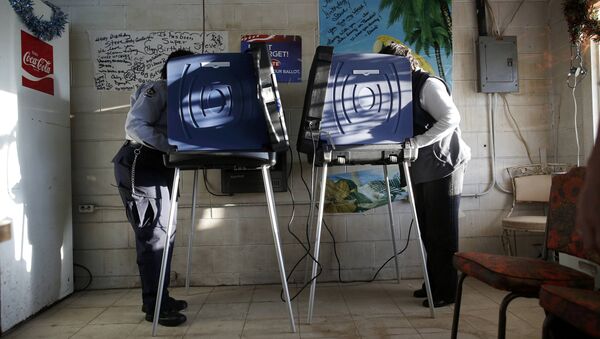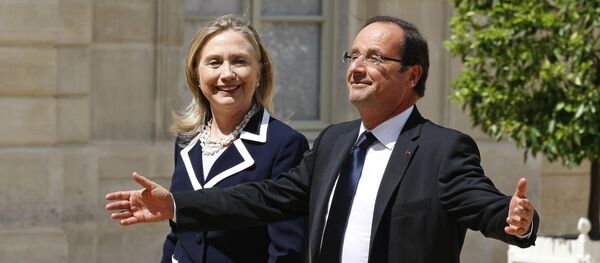This year’s election features Republican Party nominee Donald Trump against Democrat Hillary Clinton, as well as minor-party and independent candidates.
Political analysts suggest a close race between the two major candidates in key swing states, including North Carolina, Iowa, Arizona, Florida and Virginia.
While Clinton is expected to capture more support from Latinos, African-Americans and young people, business mogul Trump is likely to get more votes from the middle class.
Meanwhile, both national and state polls show larger-than-usual percentages of undecided voters and those lining up behind third-party candidates
Radio Sputnik discussed the issue with Dr. Jeanne Zaino, American political analyst and professor of Campaign Management at New York University.
"I think people are waiting for this to be over. It has been a very tough, bruising campaign on both sides. I think you have two exhausted candidates," she told Radio Sputnik.
"People are feeling like they want to move forward and see if there is a way we can get Washington working again, because it has been not just a tough election year but a tough last few decades. Because Washington has been ground to a halt, particularly in the last 48 years," she added.
The political analyst explained that there is a sense that people have been living through a "do-nothing" Congress when President Obama was elected and the Republicans famously said that they wouldn't work with him. The president however did manage to squeeze by his healthcare reform bill, which was his major piece of legislation. But that has not gone smoothly and it has not been well received by the American public.
People are hoping that these elections might turn things around, Dr. Zaino said. But given the tone of this campaign and given what looks likely to continue to be a divided government, she thinks it is going to be pretty hard to see a lot of movement forward regardless of who wins.
"The real challenge is, is it time to think of real structural changes which will reduce the division between executive and the legislative branches in order to move forward. There are very many people in the country who are eager to see these structural changes," she said.
"One is that the major political parties have been so weakened that they were unable to control their nominating process," she said.
The other thing is advertisements in social media and new technologies which have allowed the candidates to go over the heads of traditional media outlets and appeal to voters directly. This has had a huge impact on these elections not in terms of the negative rhetoric but in terms of the number of people who have been directly subjected to this rhetoric through the social media, she explained.
"If parties can't govern in Washington, and if they can't play a role in the electoral process, it becomes very hard to link what is supposed to be an election to policy outcome," she said.
"People are very disenchanted with the parties. And there is no real reason to engage in the voting except just to pay some lip service to democracy in which we are supposed to have a voice but at the end of the day we don't have a voice and policy," she finally stated.




